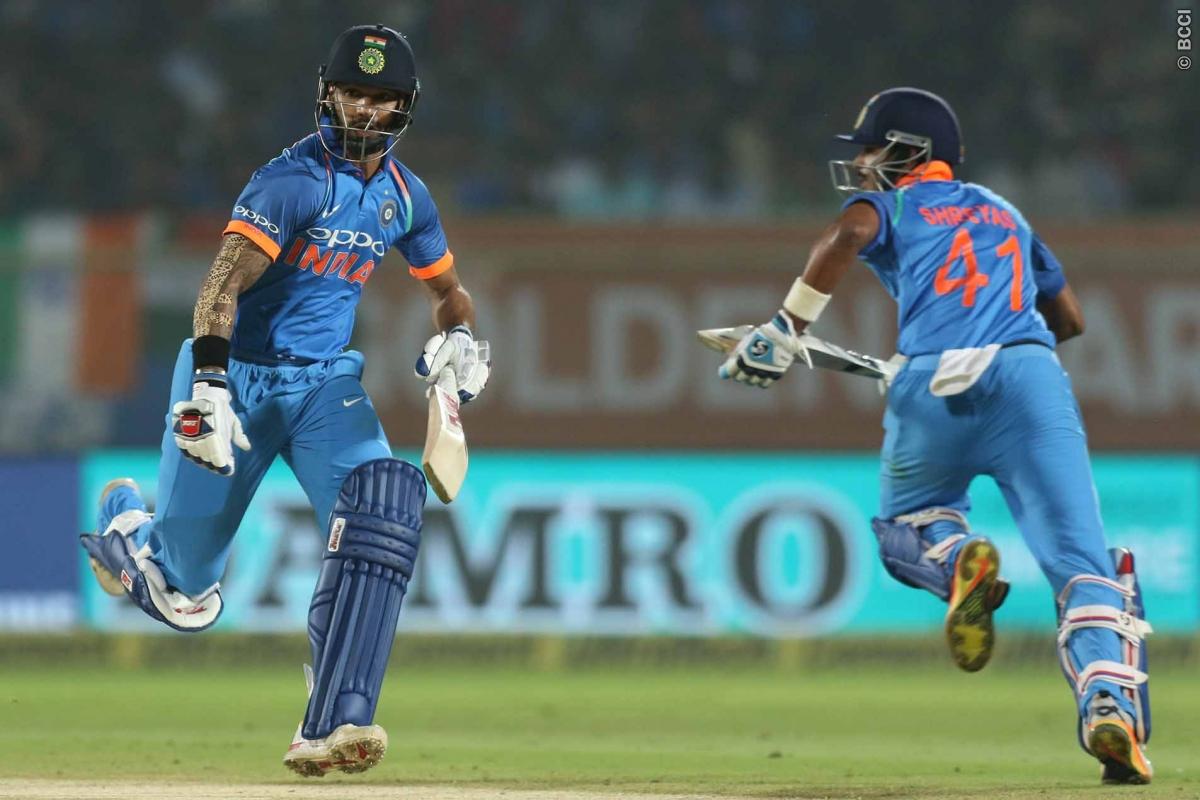India vs Sri Lanka | How and where India won third ODI in Vizag
India put up yet another splendid show with the bat and ball to seal the series 2-1 leaving Sri Lanka with a lot to think about. The way MS Dhoni guided the spinners, and the Indian batsmen’s feet movement against the Lankan slow bowlers, proved to be a huge gulf between the two nations.

MS Dhoni guides spinners to success
India managed an early breakthrough as Danushka Gunathilaka was caught at mid-on in only the fourth over of the day, but India’s happiness took a brief halt when the visitors roared back through Upul Tharanga who was particularly effective against Hardik Pandya and Bhuvneshwar Kumar. After the pacers were rendered ineffective, Sharma turned to his spinners, who managed to provide breakthroughs for the team at regular intervals. However, the duo had a streetwise Dhoni to thank for guiding them on a surface that has traditionally been the spinners' haven.
Overs 26 and 27 bowled by Chahal and Kuldeep respectively served as another validation of Dhoni's immaculate game-reading skills in the limited-overs format. With the Lankans enjoying a good position in the match, thanks to Tharanga’s flawless innings, India desperately needed a breakthrough. Even with the ball turning appreciably, Tharanga’s assortment of sweeps already disrupted whatever rhythm the spinners had worked themselves into. But Dhoni advised Kuldeep to keep the ball near the bat and with the turn on offer that might induce an edge. The feeling might have stemmed from the dismissal of Sadira Samarawickrama who used his feet to go down the ground most of the times when balls kept at the good length spots. Kuldeep, unlike the last time against Australia when he was slammed by Dhoni for failing to bowl according to his advice, followed the elder statesman's instruction this time and that resulted in Tharanga going for an expansive cover drive. And rest, as they say, was a typical “Dhoni moment” to
Chahal was also helped by Dhoni when he ran up to the young spinner, put an arm around him and explained the situation. On a turning wicket, tossing the ball outside off-stump and if possible, taking it further away from the batsman would force any batsman to hit against the spin. Chahal did that exactly and was awarded three wickets for his effort.
What Tharanga did other batsmen failed to do so
Upul Tharanga has been enjoying a brilliant 2017 and he became only the third player after Virat Kohli and Rohit Sharma to complete 1000 runs in the year in the ODIs. And his innings today was a lovely illustration of how the veteran opener has developed his technique against all kinds of the bowlers.
Today, when the team needed him the most, he rose to the occasion and gave his team a rapid start, hitting five successive boundaries in a single Hardik Pandya over and forced Rohit Sharma to deploy Kuldeep and Chahal after the end of the Power-play. To be able to successfully leave a spinner's delivery, a batsman needs to read both the line and the spin accurately, and that's why his leave to the duo’s deliveries highlighted an important aspect of Tharanga's play. He wasn't relying on the pitch to decipher what the Indian spinning duo
They, however, were
Lankans should learn from Shreyas Iyer and Shikhar Dhawan’s feet movement
Playing on a turning pitch isn't only about leaving the good balls for the wicket-keeper, but equally also about hitting boundaries and rotating the strike to put pressure on the bowlers. One must nominate the shots and the area that one prefers to target and follow it up with conviction. Shreyas Iyer and Shikhar Dhawan understood it from the beginning and expanded their reach by putting forward feet movement. Iyer went over the midwicket region a few times against Akila Dhananjay and also happily played in between the cover and point region. That was the same peculiar approach that has made the Mumbai school of batsmanship the crown jewel of Indian cricket. It was the example of how much the ability to dig in deep could help one going forward, even in the shorter version of the game.
Dhawan, on the other hand, played with a horizontal bat off the front foot and used the vertical bat while playing on the back foot and almost made sure that he negotiated the lack of bounce in the wicket. It was not at all an easy wicket to bat on but the duo made the batting look easier than it actually is and left a manual for the Lankan batsmen how to counter the spinners in an effortless manner.

 Shreyas Iyer beehive placement © BCCI.TV
Shreyas Iyer beehive placement © BCCI.TV
Comments
Sign up or log in to your account to leave comments and reactions
0 Comments